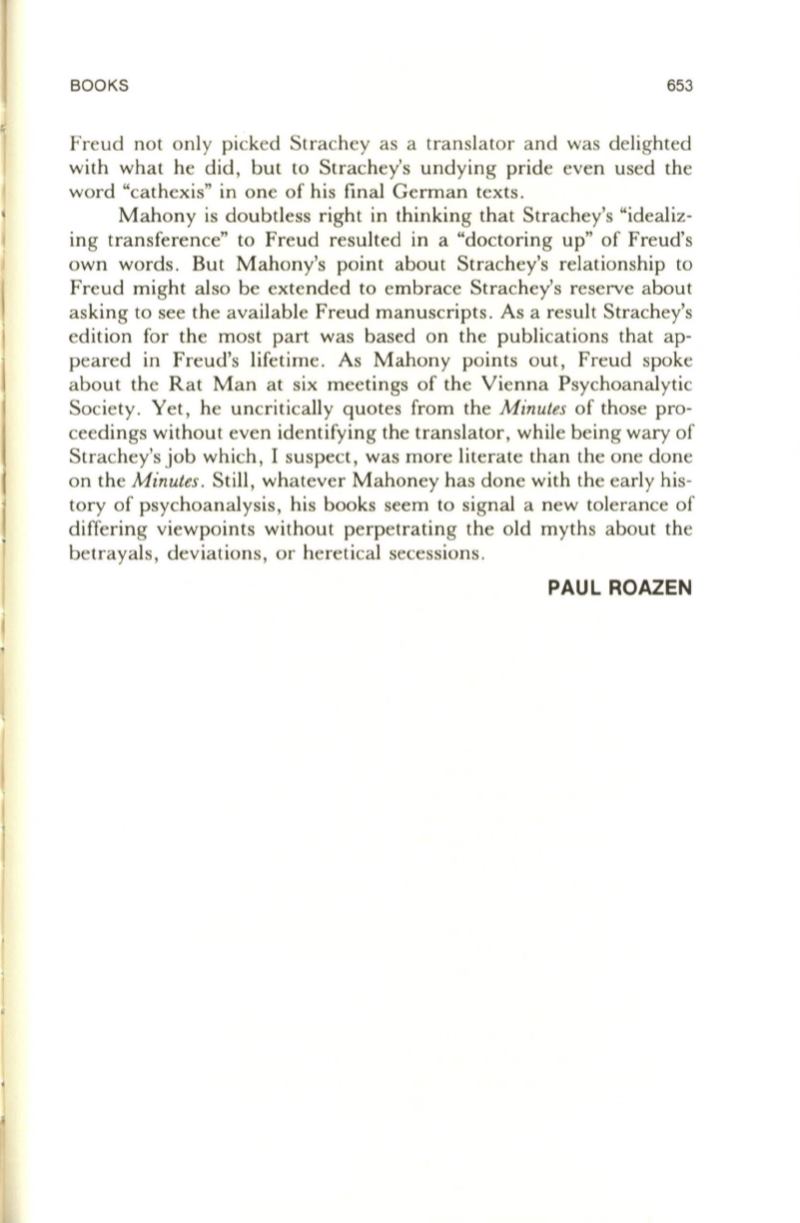
BOOKS
653
Freud not only picked Strachey as a translator and was delighted
with what he did, but to Strachey's undying pride even used the
word "cathexis" in one of his final German texts.
Mahony is doubtless right in thinking that Strachey's "idealiz–
ing transference" to Freud resulted in a "doctoring up" of Freud's
own words. But Mahony's point about Strachey's relationship to
Freud might also be extended to embrace Strachey's reserve about
asking to see the available Freud manuscripts . As a result Strachey's
edition for the most part was based on the publications that ap–
peared in Freud's lifetime . As Mahony points out, Freud spoke
about the Rat Man at six meetings of the Vienna Psychoanalytic
Society. Yet, he uncritically quotes from the
Minutes
of those pro–
ceedings without even identifying the translator, while being wary of
Strachey's job which, I suspect, was more literate than the one done
on the
Minutes .
Still, whatever Mahoney has done with the early his–
tory of psychoanalysis, his books seem to signal a new tolerance of
differing viewpoints without perpetrating the old myths about the
betrayals, deviations, or heretical secessions.
PAUL ROAZEN


